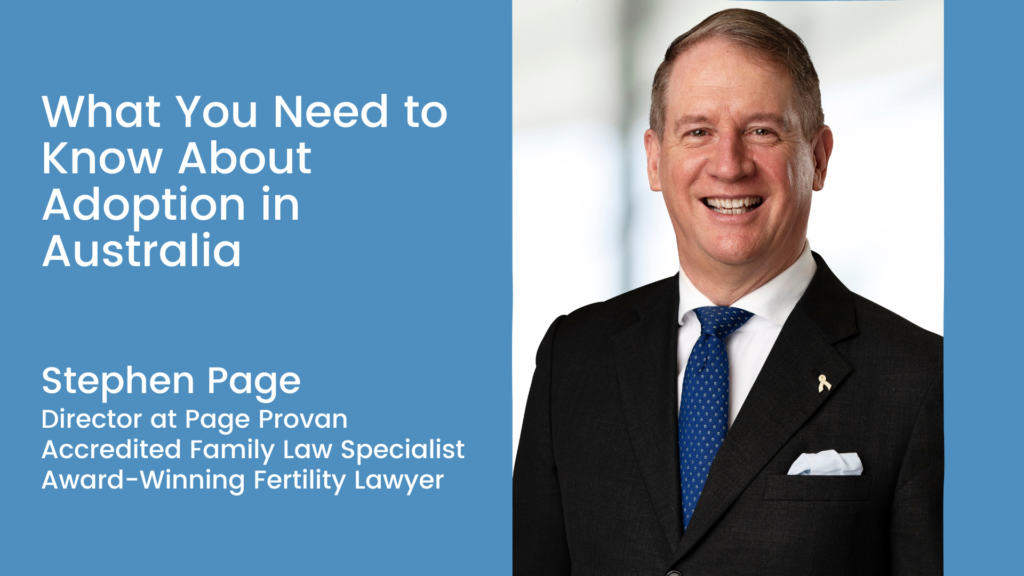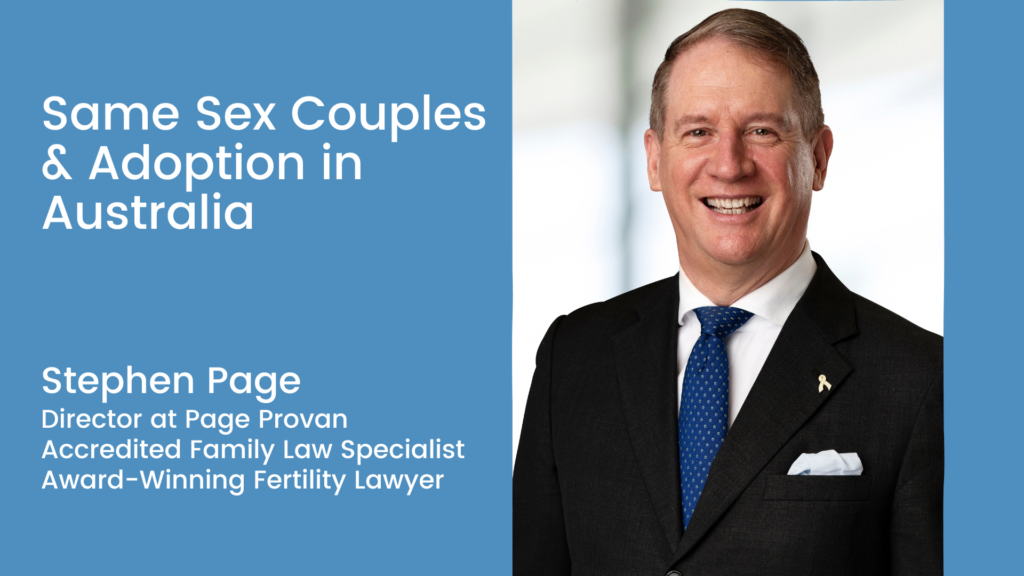The triumph of the Sex Discrimination Act- making it easier to access IVF for LGBTI people
What is the Sex Discrimination Act?
The Sex Discrimination Act 1984 is Commonwealth or federal legislation. It prohibits discrimination in a range of activities, including the provision of services, to people with certain attributes, including single women, and LGBTI people. There are exceptions, including religious exceptions.
Being Commonwealth legislation it reigns supreme. Under our constitution (and for that matter the ACT self-governing act) if there is a conflict between a piece of Commonwealth legislation and State or Territory legislation, the Commonwealth legislation prevails to the extent of the inconsistency.
Adding LGBTI people came later, and was not part of the original purpose of the Act. To allow the States time to adjust to the changes, the Commonwealth allowed some exemptions, essentially so that the States could get their houses in order and compliant with the Sex Discrimination Act.
The Commonwealth was criticised by about 100 other nations in Geneva last November at the UN for in essence being tardy on this point and allowing these exemptions to remain. The Commonwealth told the UN that it would remove the exemptions by the end of July 2016 (as also called for by then Human Rights Commissioner Tim Wilson ) and it has done so.
The demonstrated power of the Sex Discrimination Act
in the past, some States legislated to prohibit the provision of IVF to single women. It seems that only married women were good enough, in the eyes of their Parliaments to become parents. Well that fell foul of the Sex Discrimination Act, which prohibited discrimination on the basis of marital status. In two separate cases, the law was made plain- if a State law says that a doctor cannot provide treatment but the Sex Discrimination Act says that not to provide treatment is discriminatory- then the latter prevails.
The first case was that of Mrs Pearce. She was divorced and wanted to have IVF. She lived in South Australia. Her doctors refused to provide treatment- because she was not married, which would have been a breach of South Australian law. Mrs Pearce took the matter to the South Australia Supreme Court, which found that the Sex Discrimination Act prevailed, and she could have treatment.
Result: Sex Discrimination Act 1, State legislation: 0.
The second case involved a well known Melbourne fertility doctor, Dr McBain, who was unable to treat a patient because she was single. Victorian law said only married women could access IVF. Dr McBain took the Victorian government to the Federal Court, which found that the Sex Discrimination Act prevailed, and the patient could have treatment.
Result: Sex Discrimination Act 2, State legislation: 0.
What does this mean for IVF?
Quite simply, any State laws that prohibit the provision of IVF on the basis of the patients relationships status or the patient being LGBTI are now rendered nugatory, due to being inconsistent with the Sex Discrimination Act.
In South Australia, the Health Department recognised the problem and wrote to all the IVF clinics there and advised them of the change, telling them to get legal advice on a case by case basis. It is anticipated that later this year due to a process started by the Weatherill government, and in which I have input, laws will be passed in South Australia to remove discrimination in the ability of who can be a parent. But in the meantime, doctors now have an obligation to comply with the Sex Discrimination Act and provide treatment to those who were excluded before.
If in any doubt what a revolution this is, this is what s.9 of the Assisted Reproductive Treatment Act 1988 (SA) says about fertility doctors’ licensing:
“(c) a condition preventing the provision of assisted reproductive treatment except in the following circumstances:
(i) if a woman who would be the mother of any child born as a consequence of the assisted reproductive treatment is, or appears to be, infertile;
(ii) if a man who is living with a woman (on a genuine domestic basis as her husband) who would be the mother of any child born as a consequence of the assisted reproductive treatment is, or appears to be, infertile;
(iii) if there appears to be a risk that a serious genetic defect, serious disease or serious illness would be transmitted to a child conceived naturally;
(iv) if—
(A) the donor of the relevant human semen has died; and
(B) before the donor died—
• the donor’s semen was collected; or
• a human ovum (being the ovum of a woman who, immediately before the death of the deceased, was living with the donor on a genuine domestic basis) was fertilised by means of assisted reproductive treatment using the donor’s semen; or
• an embryo had been created as a consequence of such assisted reproductive treatment; and
(C) before the donor died, the donor consented to the use of the semen, fertilised ovum or embryo (as the case requires) after his death in the provision of the proposed assisted reproductive treatment; and
(D) if the donor gave any directions in relation to the use of the semen, ovum or embryo (as the case requires)—the directions have, as far as is reasonably practicable, been complied with; and
(E) the assisted reproductive treatment is provided for the benefit of a woman who, immediately before the death of the donor, was living with the donor on a genuine domestic basis.”
In Queensland, the Anti-Discrimination Act allows discrimination in assisted reproductive treatment services on the basis of relationship status and sexuality- in other words the very mischief seemingly ended by the removal of this discrimination. The Queensland Health Department has not written to IVF clinics advising about the change.
Other States
Despite being called upon by then Human Rights Commissioner Tim Wilson last year for all the States and Territories to review their anti-discrimination laws to remove discrimination against LGBTI people, it seems none have.
What does this mean for discriminatory surrogacy laws?
That bit is unclear. While the doctor might be able to provide IVF, if the intended parent is discriminated against because of being single (ACT and SA), single male (WA), a gay couple (WA), or a same sex couple (SA) in the ability to obtain through the court a surrogacy order, then we run into trouble. While there is clearly discrimination, if it is not in breach of the Sex Discrimination Act, then a doctor might be compelled to provide treatment, but be told by the regulator that IVF cannot be provided in surrogacy (such as WA).
The sooner the ACT, WA and SA get rid of their discriminatory laws concerning surrogacy, the better. Intended parents should not now be trapped between these two laws.












